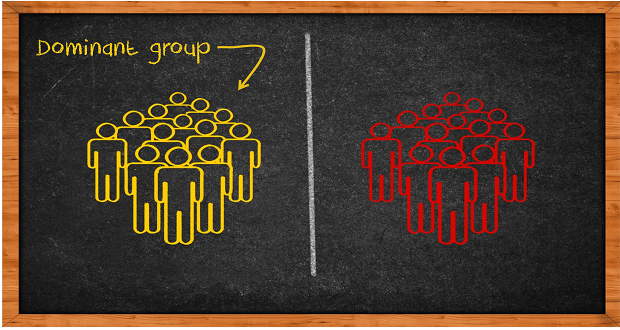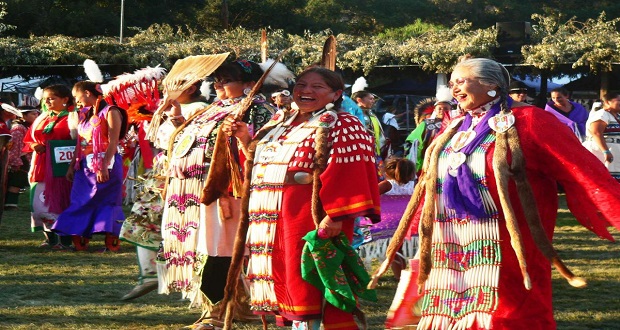
The classic sociological definition of dominant group is a group with power, privileges, and social status. Another related definition is a social group that controls the value system and rewards in a particular society. The dominant group is often in the majority but not necessarily. If we assume for a moment that the dominant group in Western Culture is white, heterosexual men, they are not in the majority. Women represent more than half of the population. If we expand to the world, about 75 percent of the population is not white, but I would submit that whites constitute the dominant group.
So dominance equates to power and the opposite of dominant group is non-dominant group which by definition would equate to lack of power and control.
The issue for me with this term is that while I absolutely believe that “domination” is a real phenomena in our society, we have yet to really unpack the complexities and the continued use of the term is not necessarily helping us to progress to an inclusive world. The “us and them” or “haves” and “have nots” thinking is too simplistic and keeps us polarized. You have power and I don’t. I have privilege and you don’t. It is not so simple. I may have privilege in some areas (earned or unearned) and not in others. The other issue is that often the dominant group does not even recognize their power and privilege.
“Overall, it appears that because of the dominance of the early Western Europeans to this country and the continued dominance of later generations of whites in the U.S., white Americans have developed an ethno-racial identity that acts as a constant lifeline but remains hidden from their view. By not having to live behind a “veil” of differentness (Du Bois [1903]2011), whites do not understand how the consequences of this identity benefit them and harm others.”
If this is true, then the very term dominant group has no meaning to the group that defines the term. Even if we could make everyone in the dominant group aware of their dominance, what would we have them do about it? I would love to hear your thoughts.



















As you suggest most people have dominant group priviledge. With education, examples and experiences you can help people see their dominance and consider the impact on others. The point is not to attempt to change the reality of dominant and subordiante membership but to change the behaviors. For example if I am aware of my dominance I can work to demonstrate empathy, liisten to understand, and be open to change. When I am suboridate I have information that can support change and I can give grace to those not living my experience and help change to happen. If both people change thier behaviors progress can be achieved.